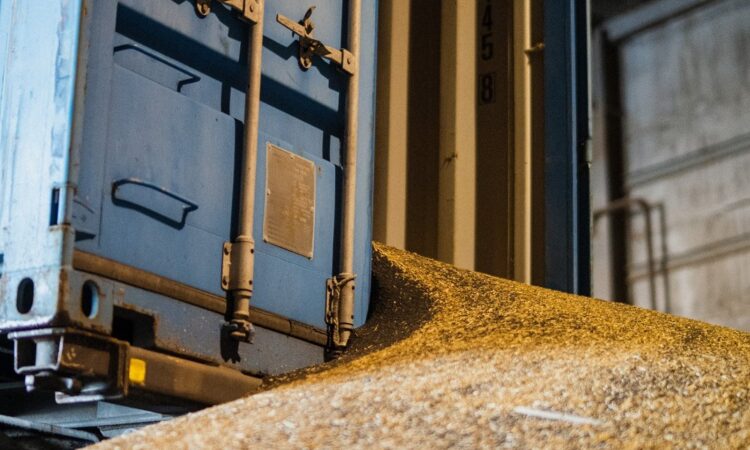
Currently, grains of the aggressor country are flowing into the European Union, including from the occupied territories in Ukraine, significantly cheaper than the market price. Some of these grains remain in Latvia and other European countries.
Prime Minister Evika Siliņa (New Unity) said at a press conference after the government meeting on Tuesday that Latvia in the person of Agriculture Minister Armands Krauze (Union of Greens and Farmers) at the EU Agriculture and Fisheries Council will invite the Member States to impose a ban on imports of Russian grain. Krauze said other government members at the EU level would also defend the position.
Krauze explained that the proposed ban would not apply to Russian grain transit through the EU.
“It is very important not to restrict [grain] transit [through the EU] to third countries, regions where food is needed to avoid starvation. In line with the policies of the UN and other international organizations, we cannot act in such a way that, for example, in an African country, people suffer. Transit is bound to continue. But there are enough EU food products, we are not in danger of starvation, so it is very important to restrict imports of these grains,” Krauze said.
The Agriculture Minister stressed that import restrictions and the imposition of sanctions on Russia are an issue at the EU level.
“This is both an ethical issue because the grain is imported from a country that is an aggressor country, and an economic issue because the grain that Russia markets is below stock exchange prices – it has a significant impact on the economy of the EU Member States, including Latvia,” Krauze said.
Krauze said the absolute majority of imported Russian cereal is maize, which also enters the EU market where it is used for both food and animal feed. Krauze said Italy imports the most Russian grain, Latvia is the second largest importer of Russian grain in the EU, while Greece is third.
Cereals, like mineral fertilizers and medicines, are not subject to sanctions, though discussions about it have taken place, the President and former foreign minister Edgars Rinkēvičs noted. These goods were not included in sanctions lists due to food problems in the global South and discussions on how to organize EU relations with Latin American, African, Asian countries to achieve condemnation of Russian aggression, Rinkevics explained.
Rinkēvičs said the issue could be brought up again, but the EU cannot be expected to make a decision quickly. However, the introduction of sanctions at the national or even Baltic level will not have an effect, grain will be transported on other routes and there will be no special impact on the financing of the Russian war, which is why Latvia insisted on a joint EU position in such matters, Rinkēvičs noted.
As such decisions are not taken quickly at the European level, both the Minister for Agriculture and the President of Latvia call on businesses to make their own decisions.
382,808 tonnes of food cereals from Russia have been imported into the European Union (EU) in 11 months this year through the border inspection posts of Latvia, including 61,894 tonnes imported in November as reported earlier by LSM. EU and Latvian laws and regulations do not restrict imports of food products from Russia, but there are suggestions to discuss banning imports of Russian agricultural products into the EU, for example, the agricultural cooperative society “Latraps” calls for abandonment of economic activity which results in Russian production entering Latvia.
Select text and press Ctrl+Enter to send a suggested correction to the editor
Select text and press Report a mistake to send a suggested correction to the editor






